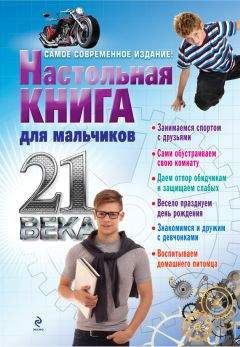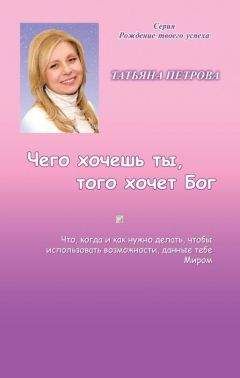Игорь Кон - Бить или не бить?
Стасов В. В. Училище правоведения сорок лет назад в 1836–1842 // В. В. Стасов. Избр. соч.: В 3 т. М.: 1952. Т. 2.
Стоюнин В. Я. Избранные педагогические сочинения. М.: Педагогика, 1954.Таганцев Н. С. Уголовное право (Общая часть). Ч. 1. По изданию 1902 г. //Allpravo.ru. – 2003. (http://www.allpravo.ru/library/docl01p/instrum2363/item2367.html).
Танеев В. И. Детство. Юность. Мысли о будущем. М.: Изд-во АН СССР, 1959.
Татищев В. Н. Избр. произведения. Л.: Наука, 1979.
Тимофеев А. Телесные наказания // Энциклопедический словарь Брокгауза и Ефрона (http://gatchina3000.ru/big/099/99980_brockhaus-efron.htm).
Тимофеев А. Г. История телесных наказаний в русском праве. 2-е изд., перераб. и доп. СПб.: Тип. В. Безобразова и Комп., 1904.
Ткаченко А. А. Сексуальные извращения – парафилии. М.: Триада М, 1999.
Ткаченко А. А., Введенский Г. Е., Дворянчиков Н. В. Судебная сексология. М.: Медицина, 2001.
Тургенев Н. И. Статья о (временной) приостановке объявления манифеста 19 февраля 1861 г. / Публикация и вступительная статья Т. Головановой // Русская литература. 1961. № 4 (http://az.lib.ru/t/turgenew_n_i/text_0020.shtml).Филиппов H. Устыдимся, взрослые! Исповедь наказанных детей специально для родителей // Семья. 1988. № 3.
Филиппов Н. Откуда в них эти гены зла? // Семья. 1988. № 4.
Фонд поддержки детей, находящихся в трудной жизненной ситуации // http://www.fond-detyam.ru/news/504.
Фрейд 3. «Ребенка бьют»: к вопросу о происхождении сексуальных извращений (1919) // Л. фон Захер-Мазох. Венера в мехах. Ж. Делёз. Представление Захер-Мазоха. 3. Фрейд. Работы о мазохизме. Пер. с нем. и франц. М.: РИК «Культура», 1992. С. 317–348.
Фуко М. Надзирать и наказывать / Пер. с фр. В. Наумовой под ред. И. Борисовой. М.: Ad Marginem, 1999.
Фурманов И. А. Дисциплинирована ребенка: Тактики разрешения родительско-детского конфликта // Психологический журнал. 2008. № 4 (20). С. 74–81.Холодная В. Г. Отцовское наказание в воспитании мальчика-подростка у восточных славян в конце XIX – начале XX вв. // Мужской сборник. Вып. 2. М.: Лабиринт, 2004. С. 170–177.
Цымбал Е. И. Жестокое обращение с детьми: причины, проявления, последствия: Учебн. пособие. М.: РБФ НАН, 2007.
Чайковский И. И. Эпизоды из моей жизни // Исторический вестник. 1913. Т. 81. № 1. С. 73—101; № 2. С. 469–499.
Чайлд Г. Древнейший Восток в свете новых раскопок. М.: Изд-во иностр. лит., 1956.
Чарская Л. Профанация стыда. СПб.—М.: т-во М. О. Вольф, 1909 (http://www.diary.ru/~charskaya/pl07868863.htm).
Чернов Н. Провинциальный Тургенев. М.: Центрполиграф, 2003.
Чернов Н. М. Дворянские гнезда вокруг Тургенева: Очерки поместной культуры и культурной жизни прошлых столетий в провинции. Тула [на тит. л.: Спасское-Лутовиново]: ИПП «Гриф и К», 2003 (www.turgenev.org.ru/e…/brigadir.htm).Шаляпин Ф. И. Маска и Душа: Мои сорок лет на театрах. М.: Вагриус, 1997. Шишова Т. Наказывать с любовью // Православие. Ru, 26 апреля 2005 г. (http://www.pravoslavie.ru/jurnal/323.htm).
Щепанская Н. Б. Зоны насилия (по материалам русской сельской и современных субкультурных традиций) // Антропология насилия / Отв. ред. В. В. Бочаров, В. А. Тишков. СПб.: Наука, 2001. С. 115–177. Щепкин М. С. Записки. Письма. Современники о Щепкине. М., 1952.
Энниг Ж. Л. Краткая история попы. М.: КоЛибри, 2006.
Ярская-Смирнова Е. Р., Романов П. В., Антонова Е. П. Домашнее насилие над детьми: стратегии объяснения и противодействия // Социологические исследования. 2008. № 1.
Advocacy. Royal College of Paediatrics and Child Health // http:// www.rcpch.ac.uk/Policy/AdvocacyRetrieved 6 August 2008.
Albrecht H-J. Gewaltzyklen. Familiaere Gewalt als Ausloeser von Jugend und Erwachsenengewalt // Recht der Jugend und des Bildungswesens (RdJB). 2008. B. 2, S. 126–134.
Arnold M. Thoughts on Education / Leonard Hugley ed.. London: John Murray, 1912.
Ascham R. The Schoolmaster. NY: Da Capo Press, 1968.
Aucoirt К. J., Frick P. J., Bodirt S. D. Corporal punishment and child adjustment // Journal of Applied Developmental Psychology. 2006. Vol. 27. № 6. P. 527–541.
Ayer A. J. Replies // Perception and Identity / G. Macdonald, ed. London: Macmillan, 1979.Bankart С. P., Bankart В. M. Japanese children’s perceptions of their parents // Sex Roles. 1985. Vol. 13. P. 679–690.
Barry H. III. Corporal punishment and other formative experiences associated with violent crimes // Journal of Psychohistory. 2007. Vol. 35. № 1.
Barry H. 3-d, JosephsonL., Lauer E., Marshall C. Agents and techniques for child training: Cross-cultural codes 6 // Ethnology. 1977. Vol. 16. P. 191–230.
Baumrind D. Child care practices anteceding three patterns of preschool behavior // Genetic Psychology Monographs. 1967. Vol. 75. № 1. P. 43–88.
Baumrind D. The discipline controversy revisited // Family Relations. 1996. Vol. 45. P. 405–414.
Baumrind D. Does established knowledge support public policy recommendations enjoining normative physical discipline (PD)?: Paper presented at the Biennial Meeting of the Society for Research in Child Development. Tampa, FL. 2003. April.
Baumrind D., Larzelere R. E., Cowan P. A. Ordinary physical punishment: Is it harmful? Comment on Gershoff (2002) // Psychological Bulletin. 2002. Vol. 128. № 4. P. 580–589.
Bedau H. A. Punishment // Stanford Encyclopedia of Philosophy, 2010 (http://plato.Stanford. edu/entries/punishment).
Benjet C., KazdinA. E. Spanking children: The controversies, findings, and new directions // Clinical Psychology Review. 2003. Vol. 23. P. 197–224.
Berlin L. J., Malone P. S., Ayoub C. et al. Correlates and consequences of spanking and verbal punishment for low-income white, African American, and Mexican American toddlers // Child Development. 2009. Vol. 80. № 5. P. 1403–1420.
Bremrter J. D. Long-term effects of childhood abuse on brain and neurobiology // Child Adolesc. Psychiatr. Clin. N. Am. 2003. Vol. 12. P. 271–292.
Bugental D. B., Martorell G. A., Barraza V. The hormonal costs of subtle forms of infant maltreatment // Horm Behav. 2003. Vol. 43. № 1. P. 237–244.
Bussman K. D. Evaluating the subtle impact of a ban on corporal punishment of children in Germany // Child Abuse Review. 2004. Vol. 13. P. 292–311.
Bussman K. D., Erthal С., Schroth A. The effect of banning corporal punishment in Europe: a five-nation comparison. Martin-Luther-Universitat, Halle-Wittenberg, Germany // Manuscript. October 2009.Chandos J. Boys Together. English Public Schools 1800–1864. Yale University Press, 1984.
Chang I. J., Pettit R. W., Katsurada E. Where and when to spank: a comparison between U.S. and Japanese college students // Journal of Family Violence. 2007. Vol. 21. № 1. P. 281–286.
Churchill W. S. My Early Life. London: Odhams Press Ltd., 1941.
Connolly P. H. Psychological functioning of bondage/dominance/ sado-masochism (BDSM) practitioners // Journal of Psychology & Human Sexuality. 2006. Vol. 18. P. 79—120.
Corporal punishment in Japan: gobsmacking = results // http:// whatjapanthinks.com/2008/07/03/corporal-punishment-in-japan-gobsmacking-results//.
Crandall M. Chiu B., Sheehan K. Injury in the First Year of Life: Risk Factors and Solutions for High-Risk Families // Journal of Surgical Res. 2006. Vol. 133. Issue 1. P. 7—10.
Cross P. A., Matheson K. Understanding sadomasochism: an empirical examination of four perspectives // T he Journal of Homosexuality. 2006. Vol. 50. № 2–3. P. 133–166.Dayton J. J. D. Corporal punishment in public schools: The legal and political battle continues // Education Law Reporter. 1994. Vol. 89. P. 729–740.
Deater-Deckard K., Dodge K. A. Externalizing behavior problems and discipline revisited: Nonlinear effects and variation by culture, context, and gender // Psychological Inquiry. 1997. Vol. 8. № 3. P. 161–175.
Deater-Deckard K., Dodge K. A., Bates J. E., Pettit G. S. Physical discipline among African American and European American mothers: Links to children’s externalizing behaviors // Developmental Psychology. 1996. Vol. 32. № 6. P. 1065–1072.
Deater-Deckard K., Lansford J. E., Dodge K. A., Pettit G. S., Bates J. E. The development of attitudes about physical punishment: an 8-year longitudinal study // J. Fam. Psychol. 2003. Vol. 17. P. 351–360.
De Zoysa P., Newcombe P. A., Rajapakse L. Corporal punishment in the Sri Lankan context: Psychological outcomes for our children // D. M. Devore (Ed.). New Developments in Parent-Child Relations Hauppauge. NY: Nova Science, 2006. P. 1—40.
Discipline and Punishment of Children: A Rights-Based Review of Laws, Attitudes and Practices in East Asia and the Pacific. Bangkok: Save the Children Sweden. Disgraceful Affair at Hounslow // http://www.stmgrts.org.uk/archives/2010/01/the_disgraceful_affair_at_hounslow.html.
Dixon W. E. 20 studies that shook up child psychology// Developments: Newsletter of the Society For Research On Child Development. 2003. Vol. 46. № 1.
Douglas E. M. Familial violence socialization in childhood and later life approval of corporal punishment: A cross-cultural perspective // American Journal of Orthopsychiatry. 2006. Vol. 76. № 1. P. 23–30.
Drey N., Pastoetter J., Pryce A. Sex-Study 2008 – Sexual Behaviour in Germany. DGSS and City University London in Collaboration with ProSieben. Duesseldorf – London, 2008.
Dugan C. The Origins of Spanking Fetish // http://nospank.net/dugan5.htm. 1996.
Durr ant J. E. Law reform and corporal punishment in Sweden: Response to Robert Larzelere, The Christian Institute, and Families First. Winnepeg, Canada: Department of Family Social Sciences. University of Manitoba, 2005.
Durrant J. E., Janson S. Law reform, corporal punishment and child abuse: The case of Sweden // International Review of Victimology. 2005. Vol. 12. P. 139–158.
Durrant J. E., Rose-Krasnor L., BrobergA. G. Physical punishment and maternal beliefs in Sweden and Canada // Journal of Comparative Family Studies. 2003. Vol. 34. P. 586–604.
Durrant J. et al. Punitive Violence Against Children in Canada // 41E CECW Information Sheet 1. 2006.
Dussich J. P. J., Maekoya Chie. Physical child harm and bullying-related behaviors: A comparative Study in Japan, South Africa, and the United States // International Journal of Offender Therapy and Comparative Criminology. 2007. Vol. 51. № 5. P. 495–509.
Ember C. R., Ember M. War, socialization, and interpersonal violence: A cross-cultural study // Journal of Conflict Resolution. 1994. Vol. 38. P. 620–646.
Ember C. R., Ember M. Explaining corporal punishment of children: A cross-cultural study // American Anthropologist. 2005. Vol. 107. № 4. P. 609–619.
Erlanger H. S. Social class and corporal punishment in child-rearing: A reassessment //American Sociological Review. 1974. Vol. 39. № 1. P. 68–85.Farrington D. P. Conduct disorder, aggression, and delinquency // Handbook of Adolescent Psychology. Second ed. / Ed. By R. M. Lerner, L. Steinberg. N.Y.: Willey, 2004. P. 626–664.
Federal Ministry of Justice & Federal Ministry for Family Affairs, Senior Citizens, Women and Youth. Violence in upbringing: An assessment after the introduction of the right to a non-violent upbringing. 2003.
Fedoroff J. P. Paraphilic Worlds // Handbook of Clinical Sexuality for Mental Health Professionals / S. Levine (Ed). New York: Routledge, 2010. Chapter 23. P. 401–424.
Fraser N. The Importance of Being Eton: Inside the World's Most Powerful School. London: Short Books, 2006.
Fukuzawa R. E., Le Tendre G. Intense Years: How Japanese Adolescents Balance School, Family and Friends. New York, London: Routledge Falme, 2001.
Fuller J. M. The science and statistics behind spanking suggest that laws allowing corporal punishment are in the best interests of the child //Akron Law Review. 2009. Vol. 42. No. 243.Gathorne-Hardy J. The Public School Phenomenon, 597—1977. L.: Hodder and Stoughton, 1977.
Gershoff E. T. Corporal punishment by parents and associated child behaviors and experiences: A meta-analytic and theoretical review // Psychological Bulletin. 2002. Vol. 128. P. 539–579.




